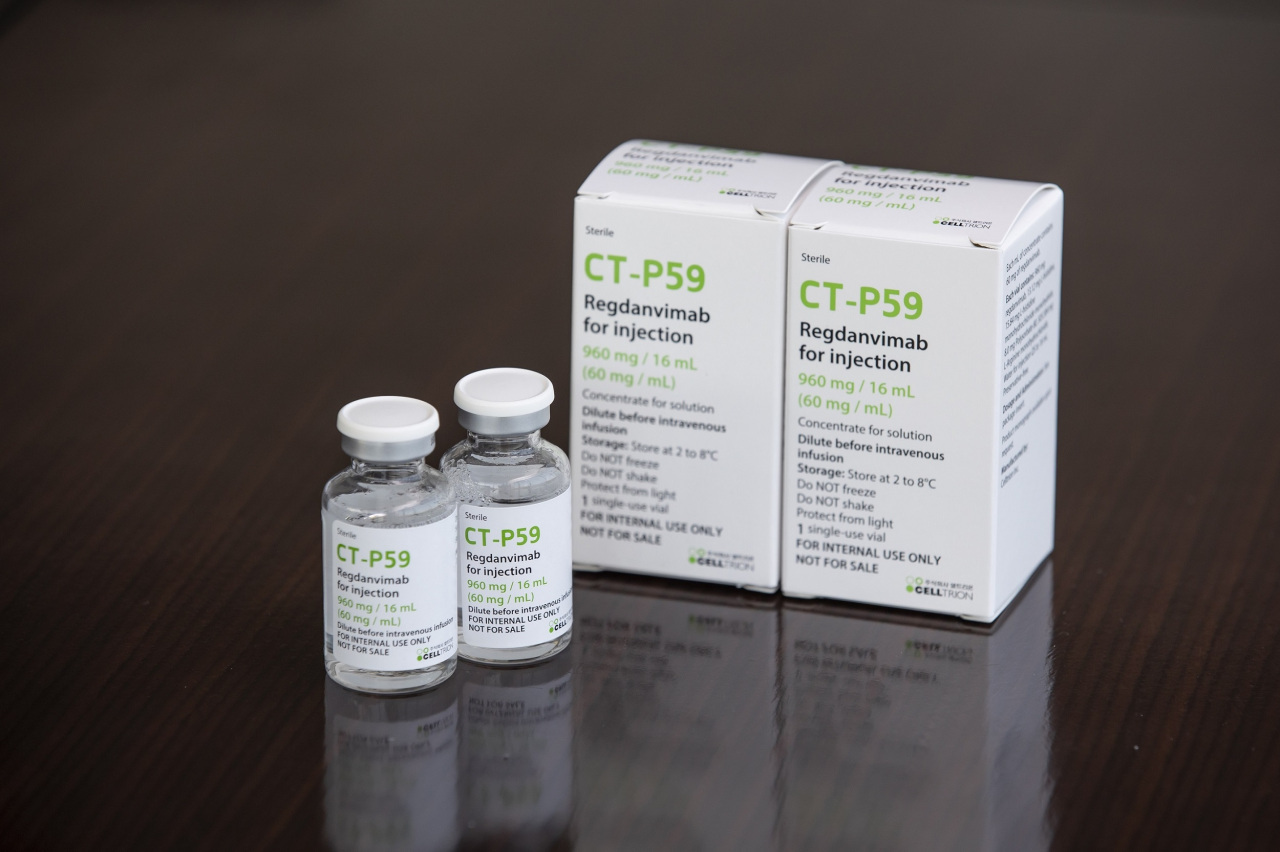 |
Celltrion’s CT-P59, also known as regdanvimab (Celltrion) |
South Korea‘s Drug Safety Ministry announced Friday it has approved Celltrion’s COVID-19 treatment candidate for conditional use.
Conditional approval of Celltrion’s CT-P59, an anti-COVID-19 monoclonal antibody treatment candidate, has become the country’s first homegrown COVID-19 treatment.
Celltrion’s CT-P59 will be administered only to COVID-19 patients at higher risk, including those over the age of 60 or with vascular diseases, chronic respiratory diseases, diabetes or high blood pressure.
The ministry authorized the treatment on the condition of Celltrion handing in results of its global phase 3 clinical trials for the COVID-19 treatment.
Celltrion plans to carry out global phase 3 clinical trials in more than 10 countries to test the safety and efficacy of CT-P59.
Last month, Celltrion announced the results of its randomized, double-blind and placebo-controlled global phase 2 clinical trials, in which the company reports that patients treated with CT-P59 saw reduced progression rates in severe cases and shortened recovery times.
Meanwhile, the ministry also announced that administration of AstraZeneca’s COVID-19 vaccine for people aged 65 and older requires further discussion, citing a lack of clinical data.
The advisory board, consisting of outside experts and ministry officials, held a meeting Thursday to review the use of AstraZeneca’s COVID-19 vaccine here. The board recommended the ministry approve the use of the AstraZeneca vaccine in adults over 18, but asked health authorities to decide on the use of the vaccine for the elderly after further review.
The ministry said the Korea Disease Control and Prevention Agency’s Korea Advisory Committee on Immunization Practices will hold a review session concerning the use of AstraZeneca’s vaccine for the elderly, on the board’s request.
In terms of the use of AstraZeneca in adults over 18, the experts recommended the ministry authorize the use of two standard doses of AstraZeneca, with the second dose being administered four to 12 weeks after the first. Pregnant women, however, should be excluded, the panel concluded.
In the first half of the year, South Korea is set to receive 2.7 million doses of COVID-19 vaccines through the World Health Organization’s global vaccine project, the COVAX Facility. The shipments include 2.59 million doses of AstraZeneca‘s COVID-19 vaccine and 117,000 doses of Pfizer vaccines.
By Shim Woo-hyun (
ws@heraldcorp.com)



![[Today’s K-pop] Blackpink’s Jennie, Lisa invited to Coachella as solo acts](http://res.heraldm.com/phpwas/restmb_idxmake.php?idx=644&simg=/content/image/2024/11/21/20241121050099_0.jpg)




